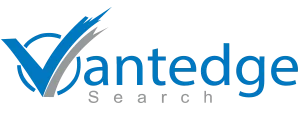- The Global Startup Odyssey: Shaping the Future of Innovation and Leadership
- Expert’s Corner: Charting Success in Shifting Sands: A Strategic Framework for Startup Resilience and Growth
- Executive Movements: Transitions and Pivots
- The Art of Leading Startups: Identifying Your Unique Leadership Path
View From The Top

Rajesh Khanna,
President,
Vantedge Search
Welcome to the April 2024 edition of our newsletter. This month, we’re diving into the electrifying world of startups and the transformative influence of dynamic leadership. We’re exploring how visionary leaders are not just adapting but thriving by fundamentally reshaping industries and redefining success.
In our cover story, “The Global Startup Odyssey,” we delve into the journeys of startups that are pushing boundaries and creating significant impacts worldwide. Alongside, our “Expert Corner” offers practical strategies for building resilience and fostering growth in these challenging times. As you explore these insights, we hope to spark your enthusiasm for innovation and provide you with the tools to lead boldly and creatively into the future. Join us in celebrating and cultivating the leaders who are shaping tomorrow, today.
The Global Startup Odyssey: Shaping the Future of Innovation and Leadership

From the garages of suburban homes to the dorm rooms of college campuses, the journey of the world’s most transformative companies began with a simple yet groundbreaking idea. Steve Jobs, Elon Musk, and Mark Zuckerberg didn’t just start businesses; they ignited revolutions within the digital landscape, transforming startups into global titans.
Today, the lure of creating the next ‘unicorn’—a startup so rare and valuable, it’s as elusive as the mythical creature—drives ambitious entrepreneurs across the globe. While the US and China lead the pack in birthing these unicorns, the vibrant startup scene in Latin America signals a shift, showcasing the universal appeal of innovation.
Yet, in the bustling markets of South Korea and India, only a select few venture into the startup arena, highlighting diverse global entrepreneurial spirits. With startups redefining economies and existence itself, every new venture holds the promise of becoming the next big thing.
What are the key trends defining the startup odyssey?
The number of startups has been on a steady climb, signaling a robust culture of innovation spurred by technological advancements and an expanded access to funding. Notably, the geographical distribution of these startups is broadening, with Asia and Africa marking their territories on the innovation map alongside the traditional strongholds of North America and Europe. This diversification is largely attributed to the digital revolution, democratizing access to resources and markets.
A distinctive feature of this era is the youthfulness of startup founders, averaging 33 years, juxtaposing the more seasoned corporate leadership. This demographic shift points to a dynamic leadership model, eager to challenge conventions and explore new frontiers.
Startups today gravitate towards consumer internet, enterprise software, and e-commerce, reflecting a keen interest in sectors ripe for disruption. However, the ecosystem’s growth comes with increased complexity, pushing startups to mature more before securing their initial funding rounds. This maturity is not just in age but in readiness to navigate the intricate web of global business.
The scene is also witnessing a surge in corporate venture capital, emphasizing a growing belief in startups as essential drivers of innovation. This investment trend highlights a broader acceptance and readiness to engage with early-stage startups, enriching the ecosystem with both resources and expertise.
Key to the success of startups are their problem-solving capabilities, the strength of the founding team, and their location within vibrant startup hubs. These factors collectively enhance their visibility to investors and access to essential resources. Moreover, emerging markets are emerging as hotbeds of opportunity, challenging traditional markets with their untapped potential and vibrant local ecosystems.
Despite the opportunities, startups navigate through a maze of challenges, including funding acquisition, talent attraction, and regulatory navigation. These hurdles underscore the importance of a well-thought-out strategy, robust networking, and adaptability.
Supportive policies and ecosystem enablers like accelerators and incubators play a pivotal role, offering mentorship, resources, and a platform for growth. However, the efficacy of these programs is contingent on their alignment with the startups’ long-term vision and sustainability.
As we peer into the future, the global startup ecosystem is poised for a more pronounced globalization, introducing new challenges and opportunities. This evolving landscape demands a leadership strategy that embraces innovation, inclusivity, and a global perspective, ready to steer startups towards a promising horizon.
In summary, the global startup odyssey is a testament to the relentless spirit of innovation and the pivotal role of leadership in navigating through this dynamic era. As the ecosystem evolves, so too must the strategies for nurturing the next generation of leaders, ensuring they are equipped to lead with vision, agility, and a global mindset.

For more information on Vantedge Search, please contact us. We look forward to hearing from you.
Expert's Corner –
What's Trending?
Charting Success in Shifting Sands: A Strategic Framework for Startup Resilience and Growth
What is the biggest challenge for startups today?
Amid the rapid market transformations, global upheavals, and evolving consumer expectations, the daunting task of steering their course through a maze of uncertainties while seeking growth and sustainability.
The challenge demands more than just agility and adaptability; it requires a strategic framework built on in-depth analysis, precise execution, and continuous innovation.
Here, we offer a nuanced exploration into constructing a resilient startup capable of not just surviving but thriving amid economic flux.
Strategic Agility: The Core of Startup Adaptation
At the heart of a startup’s ability to thrive in uncertain times is its strategic agility—the capacity to pivot swiftly in response to changing market conditions and consumer behavior. This involves rethinking business models in real-time, optimizing operations for efficiency, and staying ahead of the curve with innovative product offerings. An agile startup evaluates its core competencies and leverages them to capture new opportunities, while also being prepared to divest from ventures that no longer align with the market reality.
Financial Prudence: Facing Economic Volatility Head-on
Understanding and managing the financial intricacies of running a startup during uncertain times is paramount. This encompasses meticulous cash flow management, strategic cost containment, and securing a diversified funding base. Startups that thrived during past economic downturns, such as the 2008 financial crisis, often did so by maintaining robust financial buffers, renegotiating contracts to optimize costs, and pivoting their funding strategies towards more flexible, venture debt financing options.
Market Sensitivity: Responding to Consumer Needs
A deep understanding of shifting consumer preferences and behaviors is crucial for startups aiming to stay relevant. This requires a dual approach: continuously gathering and analyzing consumer data to anticipate market trends, and maintaining a flexible product development process that can quickly respond to these insights.
For instance, during the COVID-19 pandemic, startups that successfully pivoted to online services or adapted their product lines to meet emerging needs saw a significant uptick in consumer engagement and loyalty.
Cultural Resilience: Building an Adaptable Organization
The organizational culture of a startup significantly influences its resilience. Cultivating a culture that embraces change, values open communication, and supports innovation is essential. This includes encouraging a mindset of learning from failures and viewing challenges as opportunities for growth. A resilient culture is characterized by a shared vision that aligns the team, fosters adaptability, and drives collective effort towards overcoming obstacles and achieving long-term goals.
Operational Efficiency: Streamlining for Flexibility
Operational efficiency plays a critical role in enabling startups to navigate uncertain environments. This involves adopting lean methodologies to streamline processes, reduce waste, and increase flexibility in operations. Efficient use of resources allows startups to scale quickly when opportunities arise and retract in times of downturn, without sacrificing the quality of their product or service.
Innovation and Differentiation: The Competitive Edge
In a saturated market, startups must continuously innovate to differentiate themselves and capture consumer interest. This goes beyond product innovation to include business model innovation, market segmentation strategies, and pioneering go-to-market approaches. Successful startups often use periods of uncertainty as a catalyst for innovation, exploring new technologies, and experimenting with unconventional business models to create unique value propositions.
Thriving in an uncertain economic landscape requires startups to be more than just adaptable and innovative. It demands a strategic approach that encompasses financial acumen, market sensitivity, cultural resilience, operational efficiency, and a commitment to continuous innovation. By implementing a dynamic blueprint that addresses these areas, startups can address the complexities of today’s business environment, turning potential challenges into opportunities for growth and success.
Executive Movements:
Leadership Transitions & Strategic Pivots
CEO Movements
Boeing announced major management changes as CEO Dave Calhoun, Chairman Larry Kellner, and head of commercial airplanes Stan Deal are stepping down amidst a crisis involving the 737 Max jetliner. Calhoun will leave by the end of 2024 and Kellner won’t seek re-election, with COO Stephanie Pope stepping into Deal’s role.
Michael Rhodes, CEO of Discover Financial Services, is set to become the CEO of Ally Financial Inc., succeeding interim CEO Doug Timmerman. Rhodes’ departure coincides with Discover’s upcoming merger with Capital One Financial Corp., a $35 billion deal aimed at creating the largest US credit-card issuer.
Emad Mostaque, CEO of Stability AI, has resigned amid disputes with investors and a series of senior staff exits, transitioning leadership to interim co-CEOs Shan Shan Wong and Christian Laforte.
Wagner announces Michael Dover as its new CEO, highlighting his journey from President since 2017 to leading the architectural handrailing manufacturer.
Maju Kuruvilla exits as CEO of Bolt, passing the torch to interim CEO Justin Grooms, formerly Bolt’s global head of sales and seasoned executive from Ultraleap, Datron, and Qualcomm.
Vince Holding Corp. announces the resignation of CEO Jack Schwefel and appoints David Stefko as Interim CEO, effective immediately. The company commences a search for a permanent CEO, highlighting Stefko’s extensive experience and previous interim CEO role during COVID-19.
Greater Bay Airlines (GBA) has announced Liza Ng, the current Chief Operating Officer, as the new Chief Executive Officer effective 1 April 2024. She succeeds Stanley Hui, who will transition to a Board Director and Advisor role.
Hertz Global announces CEO Stephen Scherr’s departure and the appointment of former Delta Air Lines executive Gil West as his successor, effective April 1. This leadership change follows Hertz’s challenging venture into electric vehicles. West, previously COO at General Motors Cruise and Delta Airlines, steps in amid the company’s stock decline post-bankruptcy exit in November 2021.
Hugo Boss reaffirms its leadership by extending CEO Daniel Grieder’s tenure until 2028, promoting him as chairman of the managing board. Additionally, Oliver Timm is named deputy CEO, alongside his chief sales officer role, effective April 2024.
New York Community Bancorp (NYCB) appoints former U.S. Comptroller Joseph Otting as CEO, offering him a $1.25 million annual salary plus incentives. Otting, set to replace Alessandro DiNello from April 1, also receives options for 15 million shares.
Brad Nelson steps in as CEO of MasterCraft Boat Holdings, bringing over 30 years of experience from his recent role at Oshkosh Corp. He succeeds Fred Brightbill, who is set to retire and will transition to a consulting role after serving on the board until June 30.
Dr. Brett Ulander, previously President of Bluedrop USA, a notable entity in training and simulation for the aerospace and defense sectors, steps up as CEO, reflecting the board’s confidence in his leadership.
Andreas Schierenbeck is set to become Hitachi Energy’s CEO on July 1, 2024, succeeding Claudio Facchin. Schierenbeck, with a rich background in green-hydrogen production, energy sector decarbonization, and digital transformation in industrial services, is expected to drive Hitachi Energy towards innovative growth.
Aston Martin announces Adrian Hallmark as its new CEO, joining from Bentley Motors, where he served as Chairman and CEO since 2018. With over 25 years of global automotive leadership, Hallmark will assume his role by 1 October 2024, succeeding Amedeo Felisa, who will continue to lead until then.
3M has appointed William M. “Bill” Brown as its new CEO, effective May 1, 2024, succeeding Michael Roman, who will transition to the role of Executive Chairman of the 3M Board of Directors.
CFO Movements
Nikola, the electric truck manufacturer has welcomed Thomas Okray as its new CFO, succeeding Anastasiya Pasterick. Okray brings extensive financial leadership experience from his previous roles at Eaton, Amazon, General Motors, and other major companies.
Daniel Tempesta takes on the role of CFO at Cerence, a leader in AI assistant technology for vehicles, transitioning from a 15-year tenure at Nuance. He replaces Tom Beaudoin, reinforcing Cerence’s financial strategy with his deep expertise in finance.
Hypori, specializing in mobile security, announces Jerry Raphael as its new CFO. Raphael’s rich background in cybersecurity and SaaS, including leadership roles at Securonix and Axonius, positions him to steer Hypori’s financial strategy amidst rapid expansion.
Zachary Kirkhorn has taken over from Deepak Ahuja as CFO of Tesla, stepping up from his previous role as vice president of finance. Kirkhorn, with the company since 2010, assumes his new position amidst Tesla’s ongoing growth and financial planning endeavors.
Charles Boynton, CFO of Logitech, will exit the company in mid-May for a new opportunity at Nextracker, continuing his notable career in finance which includes leadership roles at Plantronics and SunPower.
Thomas Song has been onboarded as CFO of Cineworld Group, bringing a wealth of experience from Aimbridge Hospitality and Dine Brands Global. His appointment last December aims to strengthen Cineworld’s financial strategy and performance.
Effective April 22, Patraic Reagan will take the CFO role at SharkNinja, leveraging his extensive experience from a 13-year career at Nike and previous roles at Coach, Polo Ralph Lauren, Kraft Foods, and Chiquita Brands International. Reagan succeeds interim CFO Larry Flynn, who will continue as chief accounting officer.
Ravi Thanawala, Papa Johns’ CFO, steps up as interim CEO, succeeding Rob Lynch. Thanawala brings his financial leadership from Nike North America and previous roles at Ann, the parent company of Ann Taylor, to guide Papa Johns through this transition.
Daniel Moore has been confirmed as GameStop’s CFO from March 25, following an interim period. His background includes VP of tax at Elevate Textiles and director of international tax at Roper Technologies, aiming to stabilize GameStop’s financial direction.
Michael Herring is appointed CFO of Viz.ai, bringing his experience from Color Health, Google, Pandora Media, Adobe, Omniture, and Ancestry.com to drive the AI-powered health tech company’s financial and operational growth.
Lilium, the all-electric jet developer, welcomes Johan Malmqvist as CFO, leveraging his critical role in Polestar Automotive Holding’s U.S. public listing and his tenure as CFO at Dole Food Company to spearhead Lilium’s financial strategies.
PayZen has hired Antonio Martino as CFO, drawing on his experience from Silvergate Capital’s IPO and his tenure at LendingPoint, as well as a significant career at Citibank, to enhance its financial management.
CIO Movements
Sprinklr, the leading American software company, announced the appointment of Amitabh Misra as its new Chief Technology Officer (CTO), effective April 1. Bringing over 25 years of experience in building large-scale platforms, Misra will oversee the company’s research and development teams, including product and engineering.
KKR welcomes Ruchir Swarup as CIO, leveraging his experiences from Addepar and BlackRock to guide global investment strategies.
Crown Castle appoints Ed Chan as CIO, drawing on his extensive Verizon background to enhance wireless communication infrastructure services.
Maximus names Derrick Pledger as CDIO, capitalizing on his rich Leidos background and military service to bolster health and human service programs.
Columbia University Irving Medical Center promotes Jim Bossio to CIO, recognizing his contributions since 2014 to advance clinical, research, and educational endeavors.
Brinker International announces Chris Caldwell as CIO, aiming to leverage his Yum! Brands experience to innovate dining experiences at Chili’s and Maggiano’s.
Generac appoints Talal Butt as CIO, utilizing his background in automation and energy technology from Rockwell Automation and GE Healthcare.
The Wendy’s Company names Matt Spessard as CIO, evolving his role from SVP, global CTO, to oversee global restaurant technology innovation.
Compucom welcomes back Mike Flanagan as CIO, expecting to benefit from his extensive experience with the company and roles at Computacenter and Pivot Technology Solutions.
University of Tennessee Medical Center selects Lynnette Clinton as CIO, drawing from her BayCare Health System experience to lead in healthcare technology and innovation.
Arctic Glacier appoints Doug Saunders as CIO, leveraging his expertise from Sweeping Corporation of America to drive growth in ice production and delivery.
BlackLine hires Sumit Johar as CIO, tapping into his automation experience at Automation Anywhere to enhance financial software solutions.
Montrose Environmental Group names John Jackson as CIO, banking on his leadership at Aerojet Rocketdyne and Pratt & Whitney to advance environmental solutions.
Basware announces Barrett Schiwitz as CIO, utilizing his experience from Snap One and Travelport to refine AP automation and AI solutions.
Couchbase has appointed Julie Irish as the new tech leader. Irish brings nearly two decades of experience and aims to align the company’s global IT strategy with its business objectives.
Qantas welcomes Andrew Walduck as an entrepreneurial executive with over 25 years of career history. He plans to draw on his broad experience to excel in his new role at Qantas.
RHB Banking Group has brought on Alagesan, a PMP Certified Project Manager with 17 years of IT project management experience, to lead the bank’s IT operations in the region.
Insights: Inferring the why
Analyzing the recent wave of CEO movements across a diverse range of sectors reveals several key trends and insights that are shaping leadership dynamics in the modern corporate landscape:
- Leadership Transition Amidst Crisis: Companies are navigating leadership transitions, particularly in sectors facing public scrutiny or operational challenges. This indicates a strategic shift towards new leadership to manage crisis situations effectively and steer the companies towards recovery and renewed trust.
- Cross-Industry Mobility: The movement of executives from one industry to another highlights the value of diverse experience and cross-pollination of ideas. This trend suggests that companies are looking for leaders who can bring fresh perspectives and innovative approaches to drive growth and adaptation in a rapidly changing business environment.
- Emphasis on Strategic Mergers and Acquisitions: The departure and appointment of leaders in the context of significant mergers and acquisitions point to the critical role of strategic leadership in navigating complex corporate integrations. This trend underscores the importance of visionary leadership in achieving synergies and creating the largest players within industry sectors.
- Innovation and Digital Transformation: The transition of leaders with backgrounds in innovation and digital transformation signals a strong focus on leveraging technology to drive future growth. Companies are seeking leaders who can harness the power of digital tools and platforms to enhance operational efficiency, customer experience, and competitive advantage.
- Employee Ownership and Shared Prosperity: Appointments emphasizing the role of employee stock ownership plans (ESOP) reflect a growing trend towards shared prosperity and employee engagement in the company’s success. This approach suggests a shift towards leadership styles that value inclusivity, transparency, and collective ownership.
- Navigating Financial Pressures and Turnover: Leadership changes in companies experiencing financial pressures or significant staff turnover highlight the challenges of maintaining stability and continuity in turbulent times. This trend indicates the need for resilient leadership capable of steering companies through periods of uncertainty and change.
- Global Expansion and Sustainability: The appointment of leaders with experience in global expansion and sustainability reflects the increasing importance of international markets and environmental responsibility. Companies are prioritizing leaders who can drive global growth while advancing sustainability goals and adapting to the global demand for green energy and environmentally friendly practices.
- Strategic Continuity and Long-term Planning: Extensions of tenure and the promotion of internal candidates to leadership roles demonstrate a focus on strategic continuity and long-term planning. Companies are valuing leaders who have a deep understanding of the business and can ensure a seamless transition, underscoring the importance of stability and continuity in leadership for long-term success.
These trends highlight the evolving nature of leadership in the contemporary business landscape, where adaptability, innovation, strategic vision, and a commitment to sustainability and inclusivity are increasingly becoming the hallmarks of successful CEOs.
The Art of Leading Startups: Identifying Your Unique Leadership Path
What makes a startup CEO truly stand out in the fast-evolving business landscape? Their ability to choose and adapt their leadership style to the unique demands of their startup. This pivotal decision can significantly shape the company’s culture, influence its growth trajectory, and determine its place in the competitive market. For startup CEOs embarking on the complex journey of leadership and organizational development, finding the right leadership style is not just about management—it’s about vision, adaptability, and the art of inspiring teams to achieve shared goals.
Reflect on Personal Strengths and Weaknesses
Self-awareness is the cornerstone of effective leadership. A CEO should start by reflecting on their personal strengths and weaknesses, leadership preferences, and how these influence their interactions with the team. This introspection can help identify a natural leadership style that resonates with their personality and management approach, ensuring authenticity in leadership.
Assess the Company’s Stage and Needs
The stage of a startup plays a critical role in determining the most effective leadership style. For instance, in the early stages, a more hands-on, autocratic approach might be necessary to navigate the initial chaos, set a clear direction, and make swift decisions. As the company grows, a transformational or democratic style can help empower employees, foster innovation, and encourage a collaborative culture.
Consider the Team’s Dynamics and Culture
The composition and dynamics of the team are crucial factors. A leader must consider the team’s size, skills, motivations, and how they collaborate. A servant leadership style might be highly effective in a startup with a tight-knit, collaborative team, promoting high engagement and morale. Conversely, in a team that thrives on individual accountability and innovation, an agile leadership style might be more appropriate, emphasizing flexibility and rapid iteration.
Evaluate the Market and Competitive Landscape
The external environment—the market conditions, industry trends, and competitive landscape—also influences the choice of leadership style. In a fast-paced, highly competitive market, agile and transformational leadership styles can provide the adaptability and vision needed to stay ahead. In more stable or regulated industries, a democratic or servant leadership approach can help maintain steady growth and employee satisfaction.
Experiment and Adapt
The path to finding the most effective leadership style is not linear; it requires experimentation and adaptation. A startup CEO should be open to trying different approaches, soliciting feedback from the team, and observing what works best in practice. Leadership development is an ongoing journey, with continuous learning and adaptation as key to success.
Seek Feedback and Mentorship
Feedback from mentors, peers, and the team can provide valuable insights into the effectiveness of different leadership styles. Engaging in conversations about leadership challenges and successes can help a CEO refine their approach and adapt their style to better meet the needs of their startup.
There is no one-size-fits-all answer to leadership in the startup world. The best approach is a blend of self-awareness, strategic assessment of the company’s needs, and a willingness to adapt and evolve. By considering these factors, a startup CEO can identify a leadership style that not only aligns with their personal values and strengths but also propels the company toward its strategic goals, fostering a culture of innovation, resilience, and growth. A tailored approach to leadership is what ultimately shapes the fabric of a successful startup, guiding it through the uncertainties of growth to achieve its vision.

